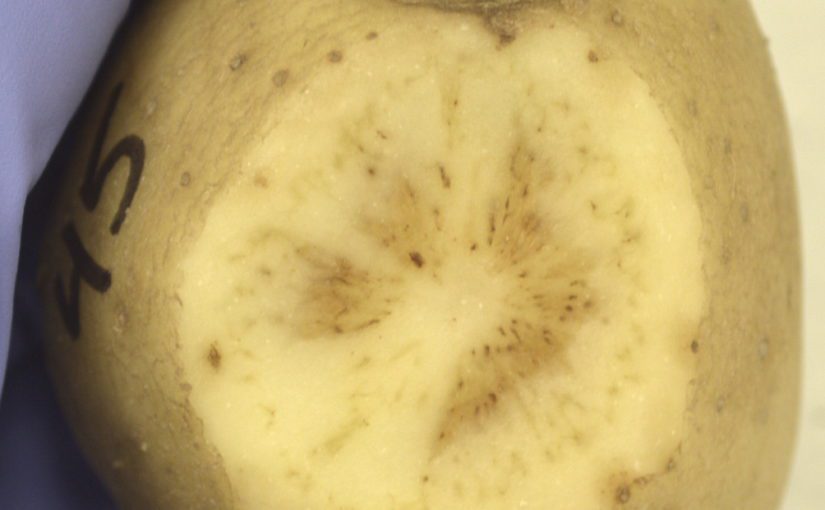Apr 19, 2019New zebra chip variety discovered in Oregon
A previously unknown variety of zebra chip disease has been discovered in Oregon.
In December 2017, chipping potato tubers that originated in the Klamath Basin were suspected to be infected with zebra chip (Candidatus Liberibacter solanacearum). They were sent to the USDA-ARS Temperate Tree Fruit and Vegetable Research Unit in Prosser, Washington.
Analysis showed the presence of a zebra chip gene haplotype in one of the tubers that did not match the six known haplotypes of the pathogen. That haplotype, designated haplotype F, is now the third that has shown to infect potatoes with zebra chip. The others are A and B.


Currently, the only method of preventing the spread of zebra chip is by targeting the psyllids with chemicals. Because the positive tuber sample had already been processed and shipped, the insect vector could not be identified, nor was symptomatic foliage available to allow for further studies. So, it’s unknown if the same psyllids spread haplotype F as A and B.
Further research is required to determine that and other effects haplotype F could have on potatoes.
The psyllid that has been identified to spread zebra chip in potatoes — Bactericera cockerelli — also infests tomatoes and peppers. It has been found in the central and western U.S., Mexico, Central America and New Zealand.
Zebra chip also has been found in carrots and other commercial crops in Europe and Africa.
This story is based on information in the research paper, “Identification of a New Haplotype of ‘Candidatus Liberibacter solanacearum’ in Solanum tuberosum” by K.D. Swisher Grimm and S.F. Garczynski.














